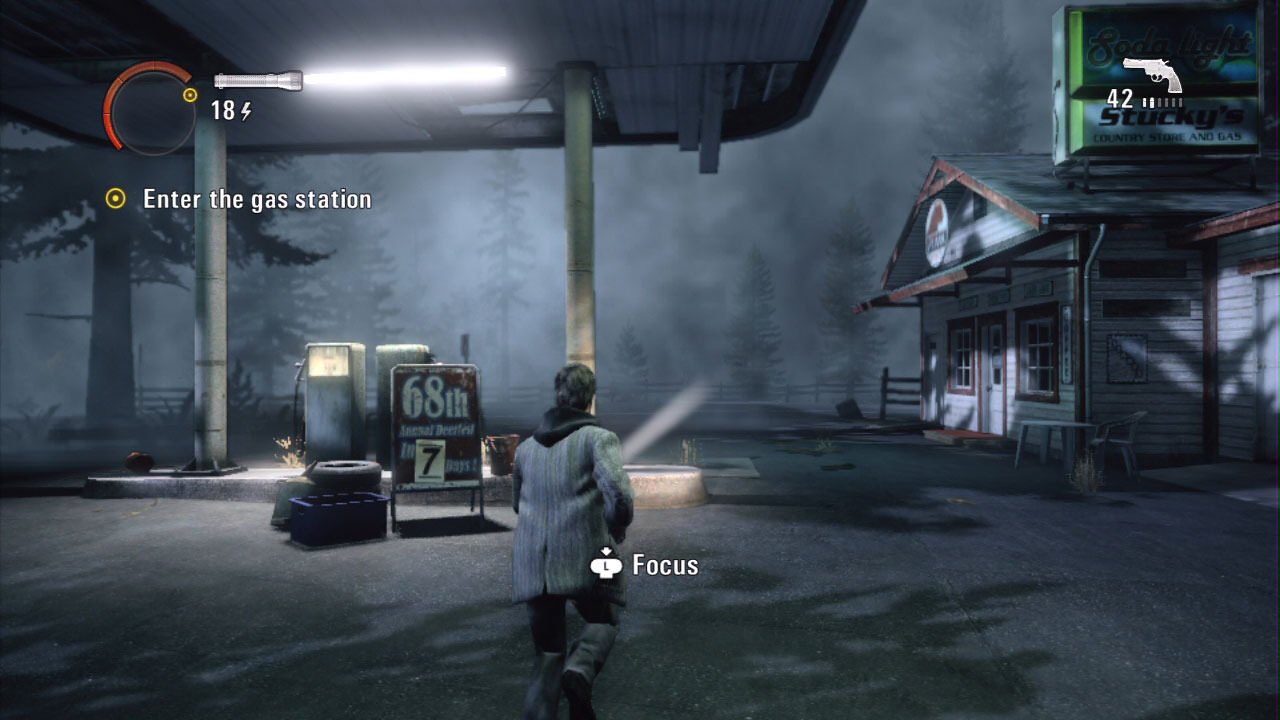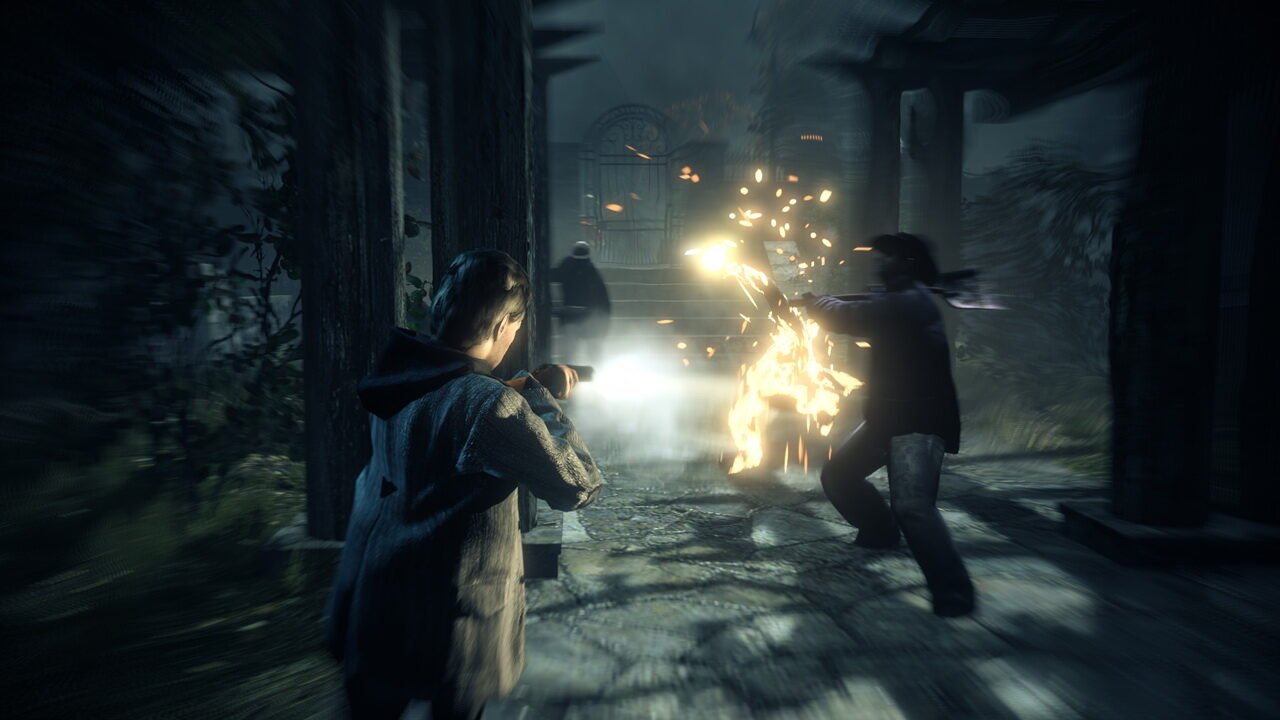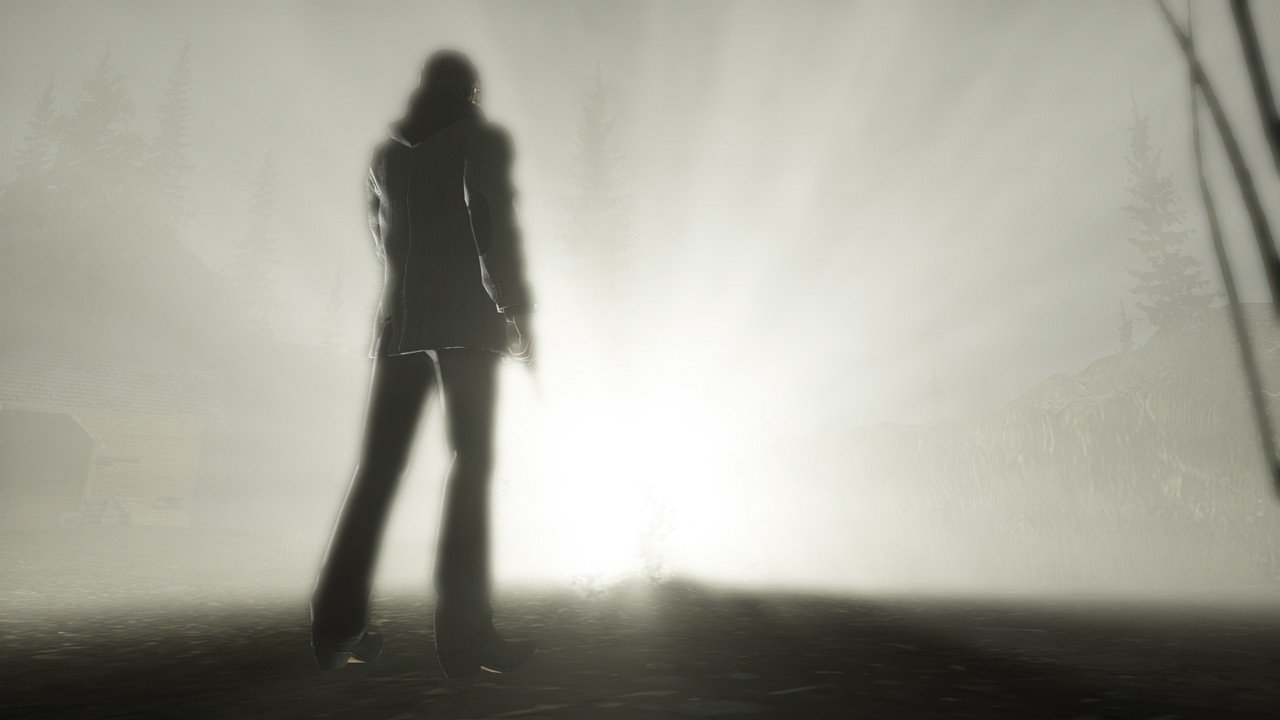With Alan Wake, Remedy has crafted a moody, meticulously detailed thriller that plays like Stephen King directing a season of Twin Peaks.
The water in Alan Wake is absolutely breathtaking. That may seem like an unusual observation to open a game review with, but the vistas really are that striking. Cauldron Lake ripples realistically in the wind, and the surrounding rivers and ponds shimmer above a haunting aquatic darkness. While an odd place to begin, it’s fitting — because the attention to detail in Alan Wake is so strong that even the most trivial elements stand out as stunning achievements. Remedy Entertainment’s first new IP since 2003 is so confident, they could afford to spend a little extra time making the water glisten.
Alan Wake is so polished, in fact, that it transcends conventional criticism. Most reviews focus on design flaws or technical stumbles. Alan Wake has almost none. The controls are tight and responsive, the level design is functional and atmospheric, and the difficulty escalates naturally as the story progresses.

The story in question owes a lot to Steven King, going so far as to reference the writer in the opening narration. Like King, the game’s titular character is a novelist. Unlike King, Alan suffers from writer’s block. His quest for a cure takes him to Bright Falls, Washington, a small logging community with architecture reminiscent of The Shining. Once he arrives, the town literally goes to hell. His wife Alice gets kidnapped and Alan wakes up a week later with no memory of the time that has passed. It all gets pieced together over the course of six episodes during an adventure that is one part Twin Peaks quirk and one part Twilight Zone head game.While Alan Wake doesn’t win points for originality, the presentation makes that irrelevant. The seamless blend of interactive gameplay and cinematic storytelling is unlike anything previously achieved in the medium. The script is lean and well-paced, with no unnecessary subplots or distractions. Supernatural devices and eccentric NPCs contribute to a dense, immersive atmosphere.
It all comes together beautifully. After awakening, Alan discovers pages of a novel he doesn’t remember writing — a novel that eerily predicts future events. A malevolent darkness has swallowed the town, and the manuscript may be the key to saving Alice and restoring the light.
Combat, viewed from a third-person perspective, is closely tied to the game’s central themes. The townsfolk — now possessed by shadowy forces and called the Taken — can only be harmed after the darkness is burned away with light. That makes your flashlight the most vital tool in your arsenal. The beam also serves as a targeting reticle. While aiming is simple, success depends on effective resource management. Using flares, flashbangs, and light sources strategically is essential. Running out of batteries mid-fight is genuinely nerve-wracking.
The Taken aren’t the smartest enemies, but they work well enough as horror antagonists. Each one is faster and stronger than Alan, and the AI’s persistence keeps the tension high. A claustrophobic fog descends whenever the Taken are near, creating a constant sense of dread. Their sudden appearances — often in large groups — deliver consistent jolts of adrenaline. Alan Wake may not be the scariest game ever made, but its encounters are deeply unsettling and often pulse-pounding.

With regards to other gameplay elements, Alan Wake doesn’t take many chances, but does wisely cut out a few excessive gameplay convention There are no weapon upgrades and the only items in your inventory are bullet The start button exists primarily to facilitate trips to the bathroom, and while you can brush up on your manuscript collection or statistics, doing so isn’t a necessary component of the game. I could keep going, but it’s easier to praise by exception. Just assume that everything not discussed is perfectly fine.
That said, the optional radio and television segments are one misstep. These collectibles can run several minutes long and force players to stand idle while the dialogue plays out. Unfortunately, they interrupt the pacing without offering much narrative payoff — a rare blemish on an otherwise well-constructed world.
Alan Wake may not end up as my favourite game of the year. It didn’t quite push my fanboy enthusiasm into blind devotion. And that’s okay. Idiosyncratic preferences — be it genre bias or storytelling taste — will shape how people respond to the game. But Alan Wake is special because personal preference, not mechanical deficiency, becomes the determining factor in its evaluation. I wish every game could be discussed in such a way. That’s why Alan Wake is worth playing: it’s a fantastic thriller that also advances what games can be as a narrative medium.





